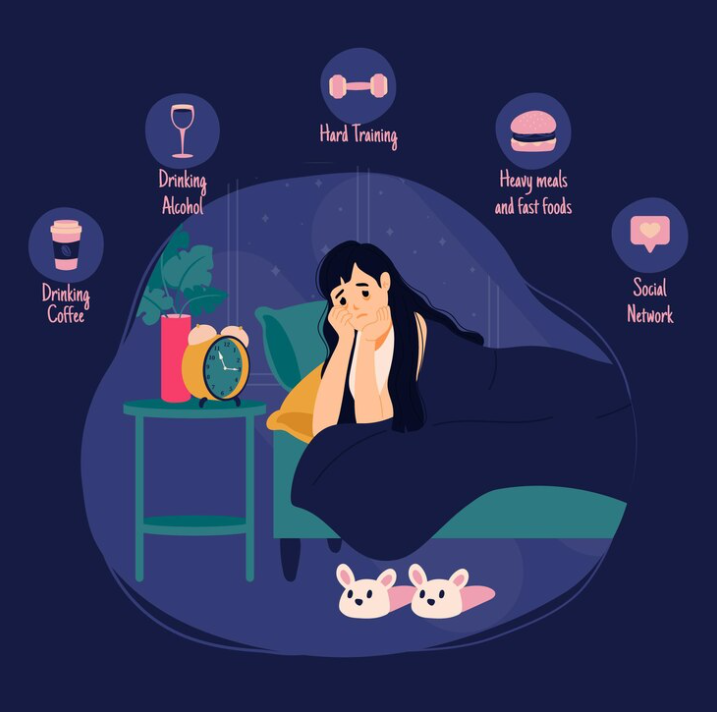
The Role of Hormones in Understanding Insomnia: Causes and Symptoms
Introduction: Insomnia, or the inability to fall asleep or stay asleep, can affect both physical and mental well-being. Hormones significantly influence sleep regulation, so understanding the hormonal factors contributing to insomnia can help in managing this sleep disorder. Let’s explore the causes of insomnia, symptoms, and hormonal effects in simple language.
Understanding Insomnia: Insomnia is a common sleep disorder involving difficulty falling asleep, staying asleep, or waking up too early without being able to go back to sleep. It can lead to fatigue, irritability, and poor daytime performance. Cortisol, melatonin, and adrenaline are essential hormones that affect the sleep-wake cycle and influence insomnia.
Causes of Insomnia:
- Stress and Anxiety: Cortisol levels increase during stress, disrupting the natural sleep cycle and making relaxation harder.
- Hormonal Changes: Hormonal shifts, such as those during menstruation, pregnancy, or menopause, can lead to insomnia, especially in women.
- Medical Conditions: Hormonal imbalances from thyroid disorders, diabetes, or sleep apnea can cause disrupted sleep.
- Medications: Certain medications, such as antidepressants, asthma treatments, and stimulants, may impact the circadian rhythm and cause insomnia.
Symptoms of Insomnia:
- Difficulty Falling Asleep: Even when feeling tired, you may struggle to drift off to sleep.
- Frequent Nighttime Awakening: Waking up multiple times and finding it hard to sleep again.
- Waking Up Too Early: Rising before desired and unable to fall back asleep.
- Daytime Fatigue: Insomnia often leads to daytime tiredness, lack of energy, and reduced concentration.
- Mood Changes: Poor sleep can contribute to anxiety, depression, and irritability.
Conclusion: Hormones are vital in regulating sleep patterns, and imbalances can significantly impact insomnia. By understanding insomnia symptoms and hormonal influences, you can take effective steps toward managing insomnia, promoting restful sleep, and enhancing quality of life.
To seek medical advice, always consult a Doctor. Here are our recommended experts. Click Here
To read more on Insomnia. Click Here


